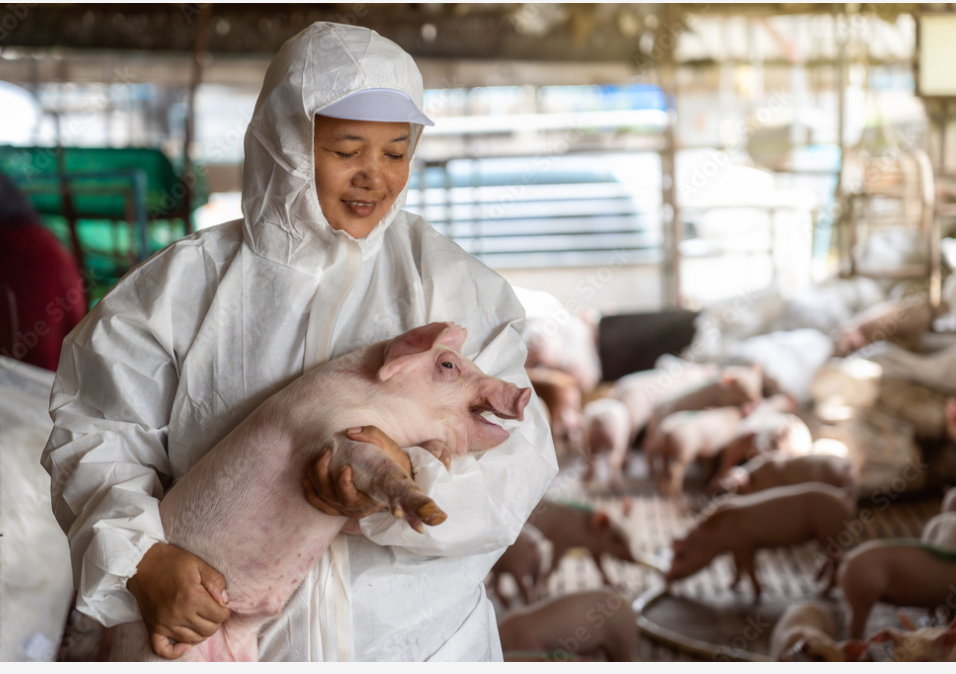
The project's purpose is to help Vietnam, Laos, Cambodia and Philippines to control the spread of African swine fever (ASF) and secure their trade in pork and pork products. The project is aimed at strengthening the implementation of sanitary and phytosanitary (SPS) and biosecurity measures. This is primarily done through training official veterinarians (training-of-trainers model), mostly face-to-face; rolling out a digital educational training platform for farmers; and providing face-to-face training for staff of central laboratories.
Press release 23 Oct 2023 (1)
Press release 23 Oct 2023 (2)
Press release 21 Jun 2024 (3)

Since the first reported outbreak of ASF in China in August 2018, the disease spread rapidly to Southeast Asia, hitting Vietnam (February 2019), Cambodia (April 2019), Laos (June 2019) and the Philippines (July 2019). This led to the death of millions of pigs and hindered the region's trade in pork products, which are essential to the population's diet and food security.
There are unique challenges to dealing with the disease in Asia given the high density of pigs, complex value chains and many other high-impact endemic swine diseases. Tackling ASF requires a regional approach in Asia.
The prevalence of ASF in the region has led to increased pork imports in affected countries. As such, import controls need to be strengthened to better control the spread of the disease. Because ASF is a highly contagious animal disease, improving overall biosecurity measures remains the main barrier to the spread of the virus, as pointed out by the Permanent Expert Group on ASF for Asia in November 2019, with needs for awareness-raising, training, technical support for producers, quality control and traceability, among other things.
Controlling communicable transboundary disease threats such as ASF requires strong capacity for surveillance, risk assessment, laboratory diagnostics, risk communications and response across the public and private sectors.
Improved understanding of SPS standards
This is achieved by providing veterinarians with in-person training in France as well as online training in the four countries covering a range of topics, such as:
- improving early detection, early warning and rapid response.
- preventing ASF and reducing its potential impact on pig farms.
- developing policies, strategies and plans to control ASF in accordance with World Organisation for Animal Health standards.
- providing foundations of the SPS agreement and how to follow the evolution of international standards on ASF.
- negotiating the sanitary conditions of import and export in the context of ASF.
- designing (export) and checking (import) health certificates
Increased competitiveness through better knowledge and the implementation of good agricultural and manufacturing practices
An educational training platform will be designed as part of the project. This comprises technical e-learning modules that allows actors in the pig industry to self-train and self-assess their knowledge. The innovative educational engineering is based on the collection of needs, feedback, field observations and exchange of experiences. Face-to-face training is also conducted.
Improved diagnostic methods for analyzing cross-border animal diseases
Project partners identify the capacity building needs of central animal health laboratories and provide face-to-face training to prevent and control ASF. The expertise of the French Agency for Food, Environmental and Occupational Health and Safety and the French Association of Directors and Managers of Public Veterinary Analysis Laboratories is called upon to carry out training courses for central laboratory staff.